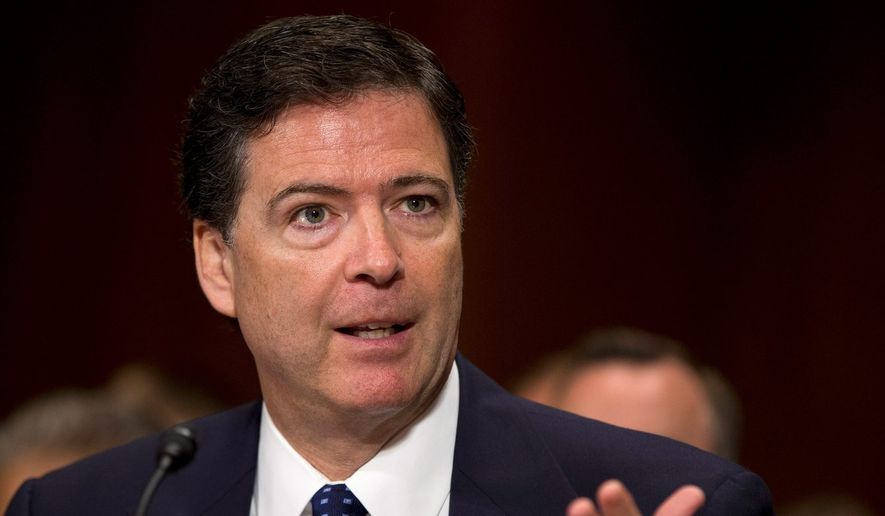The Senate on Monday approved James B. Comey to become the director of the FBI, giving an overwhelming bipartisan boost of approval to someone who has served presidents of both parties.
Mr. Comey overcame a last-minute objection by Sen. Rand Paul, Kentucky Republican, who was trying to filibuster the nomination in order to force the FBI to explain its drone surveillance policy. Minutes before Monday’s vote Mr. Paul announced he had gotten more details from the FBI and was dropping his blockade effort.
The 93-1 vote — Mr. Paul was the lone “no” vote — makes Mr. Comey the seventh director of the country’s top law enforcement agency, succeeding Robert S. Mueller III, who served for 12 years — the longest tenure since J. Edgar Hoover.
“James Comey has big shoes to fill,” said Sen. Patrick J. Leahy, chairman of the Judiciary Committee, who shepherded the nomination through the chamber. “The next director must face the growing challenge of how to sustain the FBI’s increased focus on counterterrorism while upholding the FBI’s commitment to its historic law enforcement functions.”
Senate Democrats have set up showdown votes on two of President Obama’s other high-profile nominees later this week: Samantha Power to be the U.S. ambassador to the U.N., and B. Todd Jones to be director of the Bureau of Alcohol, Tobacco, Firearms and Explosives.
Mr. Comey served as deputy attorney general under President George W. Bush, and won praise for his independence in an incident when White House officials rushed to a hospital room to try to get an ailing Attorney General John Ashcroft to reauthorize a warrantless wiretapping program over the objections of Mr. Comey, who was acting attorney general.
PHOTOS: Top 10 handguns in the U.S.
Mr. Mueller has already served two years beyond the standard 10-year term for FBI directors. He took office just before the Sept. 11 attacks on New York and the Washington region, and Congress gave him a two-year extension in 2011.
Mr. Paul had threatened to try to lead a filibuster of Mr. Comey’s nomination, saying he wanted to get more information on how the FBI uses drones for surveillance after Mr. Mueller revealed during a congressional hearing earlier this year that it had been done in limited cases.
In letters to Mr. Paul this month, the FBI said it has used drones in eight criminal cases and two of what it deemed “national security” cases. The agency had authorized drones’ use in three other criminal cases but didn’t actually end up using them.
“None of the [drones] used by the FBI are armed with either lethal or non-lethal weapons, and the FBI has no plans to use weapons with [drones],” Stephen D. Kelly, assistant director for the FBI’s congressional liaison office, said in one letter.
In a follow-up letter Mr. Kelly said agency officials do not believe a warrant is needed for the FBI to use drones.
Mr. Kelly said the agency takes its direction from several Supreme Court cases that didn’t cover drones but did address manned aerial surveillance. In those cases, the court ruled that as long as the areas observed were in public view, no privacy rights were violated.
PHOTOS: Magazines can't agree on the sexiest woman alive; you be the judge
Mr. Paul said he disagreed with that interpretation and voted against Mr. Comey’s nomination, but he did not force the Senate to hold a filibuster vote.
• Stephen Dinan can be reached at sdinan@washingtontimes.com.




Please read our comment policy before commenting.